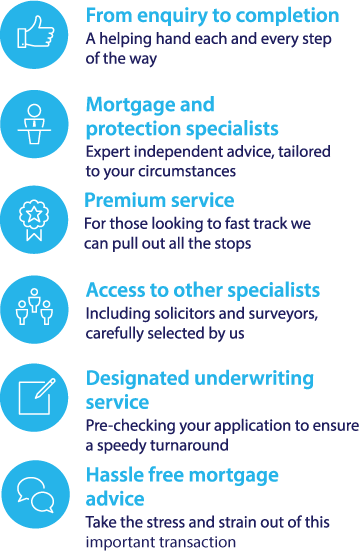How Mortgages Work
If you’re looking into buying your own home or perhaps purchasing a property as an investment like a residential or commercial buy to let, you might be wondering how mortgages work.
There are a diverse range of mortgages available on the market. How mortgages work therefore will vary on different factors such as how you would like to repay your loan and what you wish to use the property for.
Commonly mortgages are broken down into two different types, repayment and interest only. If you are looking for a mortgage one of the first things you might want to think about is which you feel you would prefer:
-
Interest only mortgages – Interest only mortgages tend to have cheaper monthly charges than their repayment counterpart, however this is because you are only paying for the interest that accrues on the loan. As the amount you owe the lender does not decrease over this period, at the end of your term you will be required to pay back in full the capital you originally borrowed from the lender. Due to the increased level of risk with this finance option lenders have stricter lending criteria, they will generally require applicants to have larger salaries than would be necessary with a repayment mortgage, they also require the borrower to provide them with a detailed savings or investment plan showing how they intend to raise the capital necessary to repay the mortgage at the end of its term.You may also have a choice in how the interest that accrues on your loan is calculated, at least for the introductory period of your mortgage.
Before you take out a buy to let mortgage you should also decide what kind of interest accumulation you would prefer:
-
Fixed Rate – With a Fixed Rate mortgage your interest payments are the same throughout the course of the introductory period; this means you will know exactly how much you will be required to pay each month for this period. When your introductory period runs out you will with most mortgages be switched to the lender’s Standard Variable Rate (SVR), which is an interest rate set by each individual lender which they can vary.
-
Tracker – With a tracker mortgage option how much you are required to pay each month could increase or decrease into relations to changes to the Base Rate, which is an interest rate set by The Bank of England. At the end of your introductory period you will with most mortgages be switched to their SVR.
Whichever type of mortgage you opt for your loan is secured against the property, this means that the lender can repossess the property if you fail to keep up with your repayments.
How your mortgage works may also be affected by its purpose, for example if you are looking for a property to live in yourself then how much you can borrow is commonly assessed as being a multiple of your annual income, this amount varies by lender but is often 4.5 times.
However if you were looking to purchase a property to rent to others, then the potential rental yield of that property would affect how much you can borrow, lenders will generally require the potential monthly rental income of a property to be at least 125% of what you would need to pay to the lender, regardless of what other sources of income you might.
If you want to find out more about different kinds of mortgages then you can fill in the online enquiry form to request a call back from a Fair Mortgages advisor for a free initial conversation.
Alternatively if you would like to see what mortgages might be available to you, you could use the Fair Mortgages comparison tool, which will be able to filter you a selection of mortgages based on the requirements you enter so you can compare the features of the different offerings.
Our Mortgage Service
Getting a mortgage can bring with it a range of complexities when arranging mortgage finance. Our mortgage service offers:
-
Whole of market service - we work with most UK mortgage lenders
-
Access to leading market mortgage rates
-
Access to exclusive mortgage deals not available on high street
-
Fast turnaround - speak to us today if you need to move quickly
-
We have lenders who will take into account previous credit issues
-
Looking to raise additional finance on top of your existing mortgage or buy to let mortgage? - we have access to a range of innovative finance solutions
To investigate your mortgage options call our specialist mortgage team on 0117 403 4474 or fill in our callback request form.
